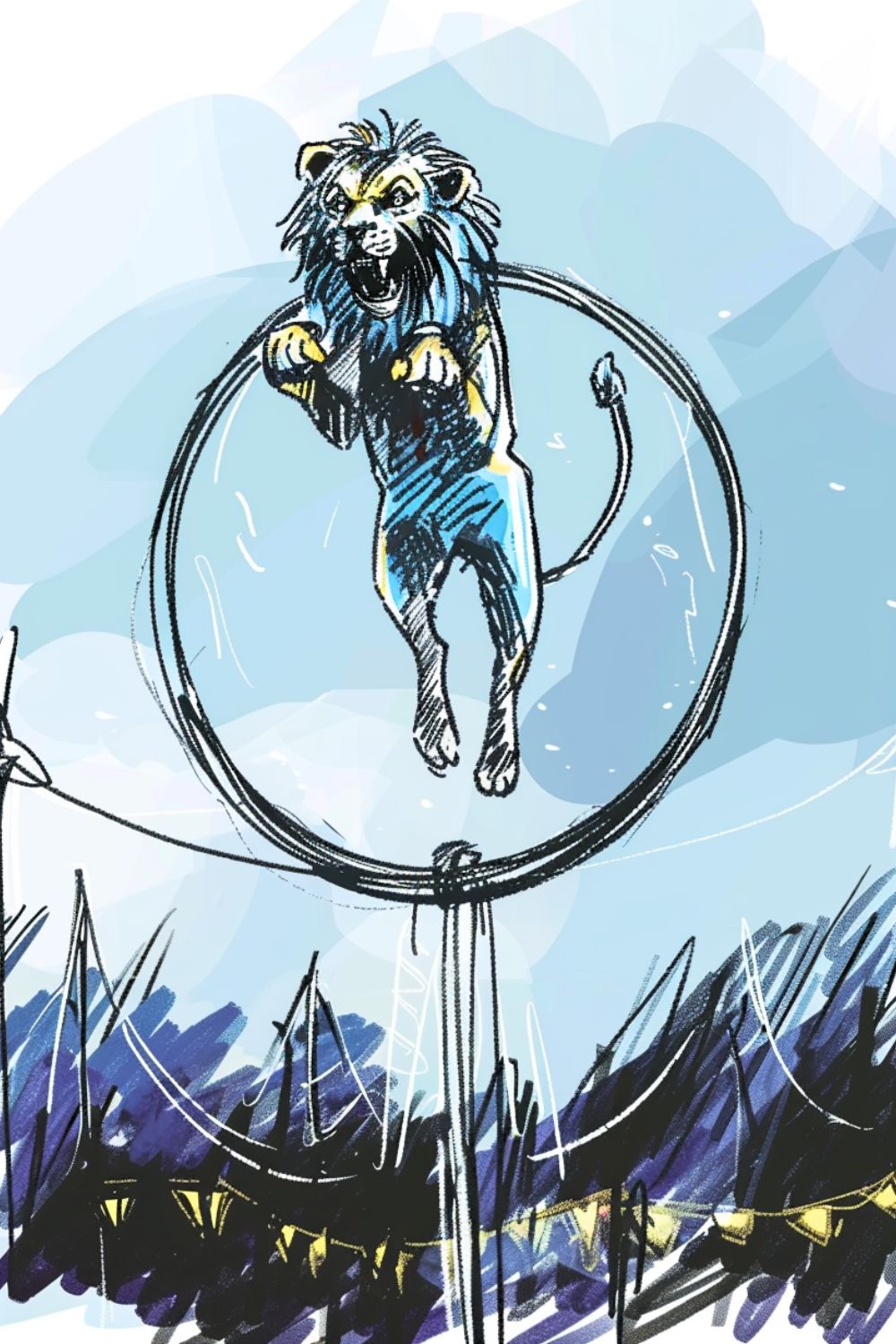Ever wondered how to add a touch of flair to your everyday work conversations? Idioms can be your secret weapon, offering colorful, concise ways to express complex ideas and emotions. Whether you’re burning the midnight oil or aiming to bring home the bacon, these idiomatic expressions capture the essence of workplace experiences in a fun and relatable way!
Let’s jump on in.
1. Burn the Midnight Oil
“Burn the midnight oil” means to work late into the night.
The origin of this idiom dates back to before electric lighting when oil lamps or candles were used for illumination. Burning the midnight oil meant staying up late, working, or studying by the light of an oil lamp.
Think of a student preparing for final exams. As the test dates approach, they find themselves burning the midnight oil, staying up late into the night to review their notes and textbooks. This intense late-night studying is a perfect example of burning the midnight oil.
Example sentences:
Example 1:
Example 2:
2. Put in Overtime
“Put in overtime” means to work longer than your usual hours.
This idiom is common in work environments where employees are paid for extra hours worked beyond their regular schedule. Putting in overtime often involves staying late or coming in on weekends to complete tasks or meet deadlines.
Picture an employee in a busy accounting firm during tax season. To handle the increased workload, they put in overtime, working evenings and weekends to ensure all the clients’ taxes are filed on time. This extra effort exemplifies putting in overtime.
Example sentences:
Example 1:
Example 2:
3. Show Someone the Ropes
“Show someone the ropes” means to explain to someone how things are done.
The idiom comes from the days of sailing ships, where ropes were used to control the sails. New sailors had to learn how to handle the ropes to manage the ship effectively. Thus, showing someone the ropes teaches them how to handle tasks or navigate a new environment.
Imagine a new employee starting their first day at a tech company. A seasoned colleague takes them under their wing, showing them the ropes by explaining the company’s systems, introducing them to coworkers, and guiding them through their first tasks. This mentoring process is a clear example of showing someone the ropes.
Example sentences:
Example 1:
Example 2:
4. Pull Out All the Stops
“Pull out all the stops” is an idiom that means to do everything possible to achieve something, using all available resources and effort.
This phrase originates from the world of pipe organs. On a pipe organ, stops are the knobs that control the flow of air through the pipes. Pulling out all the stops allows air to flow freely through all the pipes, creating a powerful, full sound. Hence, pulling out all the stops means using every available resource to achieve maximum effect.
Imagine you’re working on a critical project at work. The deadline is looming, and success is crucial for your career. You and your team decide to pull out all the stops, putting in extra hours, utilizing all available resources, and collaborating intensely to ensure the project’s success. This dedication and effort reflect the essence of the idiom.
Example sentences:
Example 1:
Example 2:
5. Nine-to-Five (job)
“Nine-to-Five” refers to standard office hours.
This idiom comes from the typical working hours of many jobs, especially those in offices, where employees work from 9 AM to 5 PM, Monday to Friday. It symbolizes the routine and regularity of a conventional job.
Imagine a corporate employee who follows a nine-to-five schedule, starting their day at 9 AM, working through the day, and finishing at 5 PM. This routine is the essence of a nine-to-five job.
Example sentences:
Example 1:
Example 2:
6. Jumping Through Hoops
“Jumping through hoops” means going through a lot of effort or difficulties to do something.
This idiom originates from the circus, where animals, particularly lions, were trained to jump through hoops during their performance. It symbolizes the challenging and sometimes arbitrary tasks one must complete to achieve a goal.
Picture someone applying for a visa to travel abroad. They must fill out numerous forms, provide extensive documentation, and attend multiple interviews. Fulfilling all the requirements is akin to jumping through hoops.
Example sentences:
Example 1:
Example 2:
7. Climb the Corporate Ladder
“Climb the corporate ladder” means to advance in a company through promotions.
This idiom evokes the image of a ladder, where each rung represents a higher level of position and responsibility within a company. Climbing the corporate ladder involves moving up from lower to higher roles through hard work and dedication.
Think of an ambitious employee who starts in an entry-level position and gradually moves up to manager, then director, and eventually, a senior executive role. This journey exemplifies climbing the corporate ladder.
Example sentences:
Example 1:
Example 2:
8. Keep Your Nose to the Grindstone
“Keep your nose to the grindstone” means to work hard and focus on your tasks.
This idiom dates back to grinding tools against a grindstone to sharpen them. Keeping one’s nose to the grindstone implies staying closely focused on the work at hand, ensuring diligence and hard work.
Imagine a writer working on a tight deadline for a new book. They keep their nose to the grindstone, writing daily, staying focused, and avoiding distractions to complete the manuscript on time. This level of dedication illustrates keeping your nose to the grindstone.
Example sentences:
Example 1:
Example 2:
9. Piece of Cake
“Piece of cake” means a task that is easy to do.
The idiom likely comes from the ease of eating a piece of cake, suggesting that the task is simple and requires little effort. It’s often used to describe something that is unexpectedly easy.
Consider a student who finds a particular math problem very easy. They might say, “This problem is a piece of cake,” indicating that it requires little effort.
Example sentences:
Example 1:
Example 2:
10. Cut Corners
“Cut corners” means to do something in the easiest, quickest, or cheapest way, often sacrificing quality.
The idiom suggests taking shortcuts to save time, effort, or money, usually resulting in substandard outcomes. It implies a lack of thoroughness or attention to detail.
Picture a construction company that uses cheaper materials to build a house to save money. They cut corners, resulting in a house that may have structural issues. This practice exemplifies cutting corners.
Example sentences:
Example 1:
Example 2:
11. Work Like a Dog
“Work like a dog” means to work very hard and tirelessly.
This idiom reflects the idea of a dog working hard, often used historically to describe farm dogs that helped with herding and other tasks. It emphasizes relentless effort and dedication.
Imagine an employee working long hours at the office, tackling multiple projects, and exceeding their job description. They are working like dogs to achieve their goals.
Example sentences:
Example 1:
Example 2:
12. Bring Home the Bacon
“Bring home the bacon” means to earn a living or be successful.
The idiom originates from an old English tradition where winning a side of bacon at a fair was considered a significant prize. Today, it signifies providing for oneself or one’s family through hard work.
Consider a person who works multiple jobs to support their family. They are bringing home the bacon, ensuring their loved ones are well cared for.
Example sentences:
Example 1:
Example 2:
13. Roll Up Your Sleeves
“Roll up your sleeves” means to prepare to work hard or get involved in a difficult task.
This idiom evokes the image of someone literally rolling up their sleeves to keep them clean while engaging in physical labor. It symbolizes readiness to tackle hard work and to get one’s hands dirty.
Imagine a team facing a tight project deadline. The manager calls a meeting and tells everyone to roll up their sleeves, signaling that it’s time to put in extra effort and work hard to meet the deadline.
Example sentences:
Example 1:
Example 2:
14. Get the Sack
“Get the sack” means to be fired from a job.
This idiom is believed to have originated from when workers dismissed from their jobs were given a sack to carry their belongings. Being given the sack was a sign that they were no longer employed.
Consider an employee who frequently arrives late to work and misses important deadlines. Eventually, their boss decides to let them go. This situation is described as getting the sack.
Example sentences:
Example 1:
Example 2:
15. Bend Over Backwards
“Bend over backwards” means to make a great effort to do something, often going beyond what is necessary.
The idiom suggests the image of someone literally bending over backwards to help or accommodate someone else, implying a significant and sometimes excessive effort.
Imagine a customer service representative who goes out of their way to resolve a client’s issue, even staying late to ensure everything is perfect. This dedication shows how they bend over backwards to provide excellent service.
Example sentences:
Example 1:
Example 2:
16. Get Your Hands Dirty
“Get your hands dirty” means to do hard or dirty work, often involving manual labor or effort.
The idiom suggests being willing to engage in physical tasks or tackle challenging issues, rather than avoiding them or delegating to others.
Imagine a manager joining their team on the shop floor to help with a critical project, showing willingness to get their hands dirty and support the team.
Example sentences:
Example 1:
Example 2:
17. Under the Gun
“Under the gun” means to be under a lot of pressure or to have a tight deadline.
The idiom “under the gun” evokes the image of someone facing immediate danger or stress, similar to having a gun pointed at them, highlighting the urgency and intensity of the situation.
Consider an advertising team working to finalize a campaign just hours before the client meeting. They are under the gun to complete everything on time, showcasing the pressure they face.
Example sentences:
Example 1:
Example 2:

Hey fellow Linguaholics! It’s me, Marcel. I am the proud owner of linguaholic.com. Languages have always been my passion and I have studied Linguistics, Computational Linguistics and Sinology at the University of Zurich. It is my utmost pleasure to share with all of you guys what I know about languages and linguistics in general.












